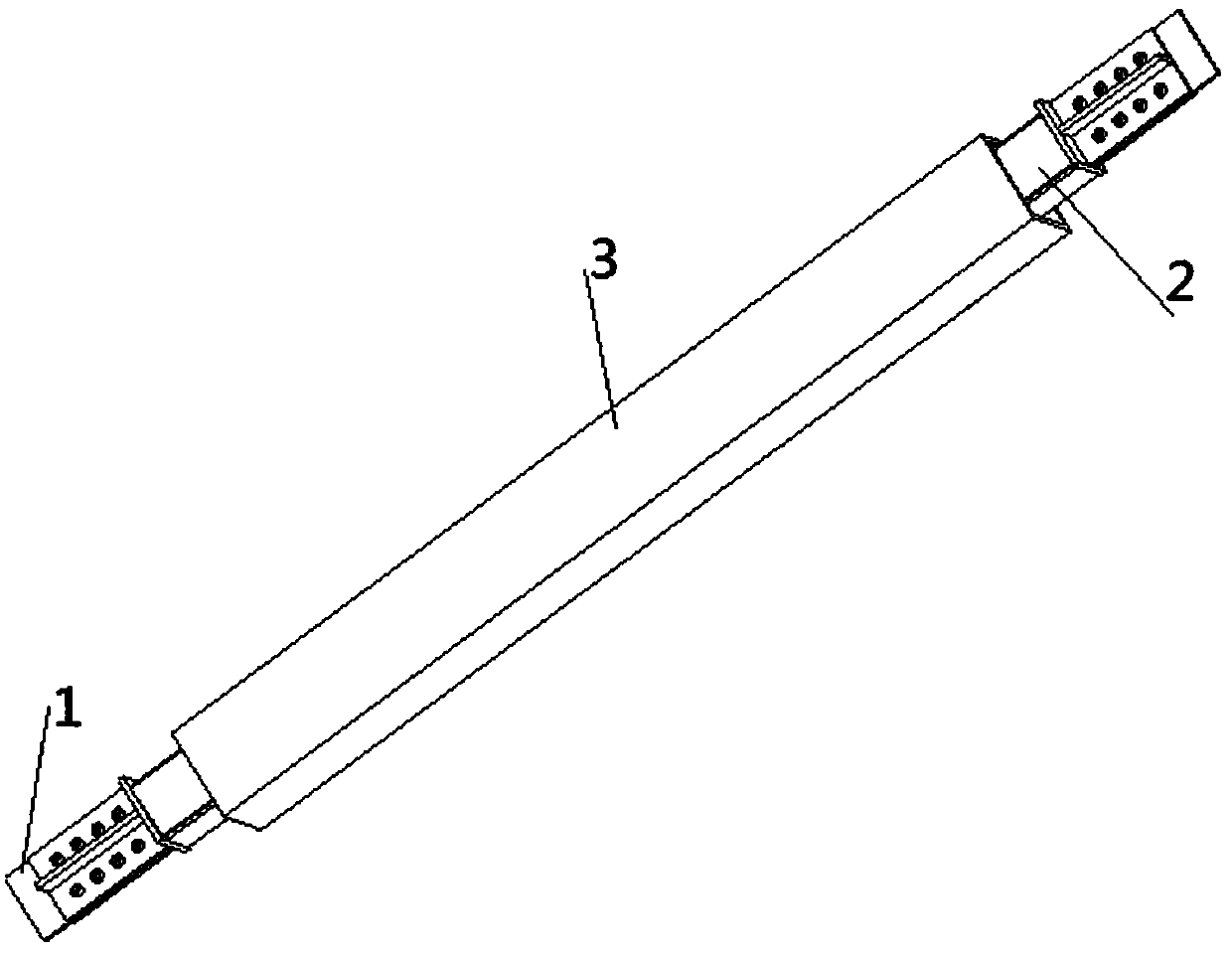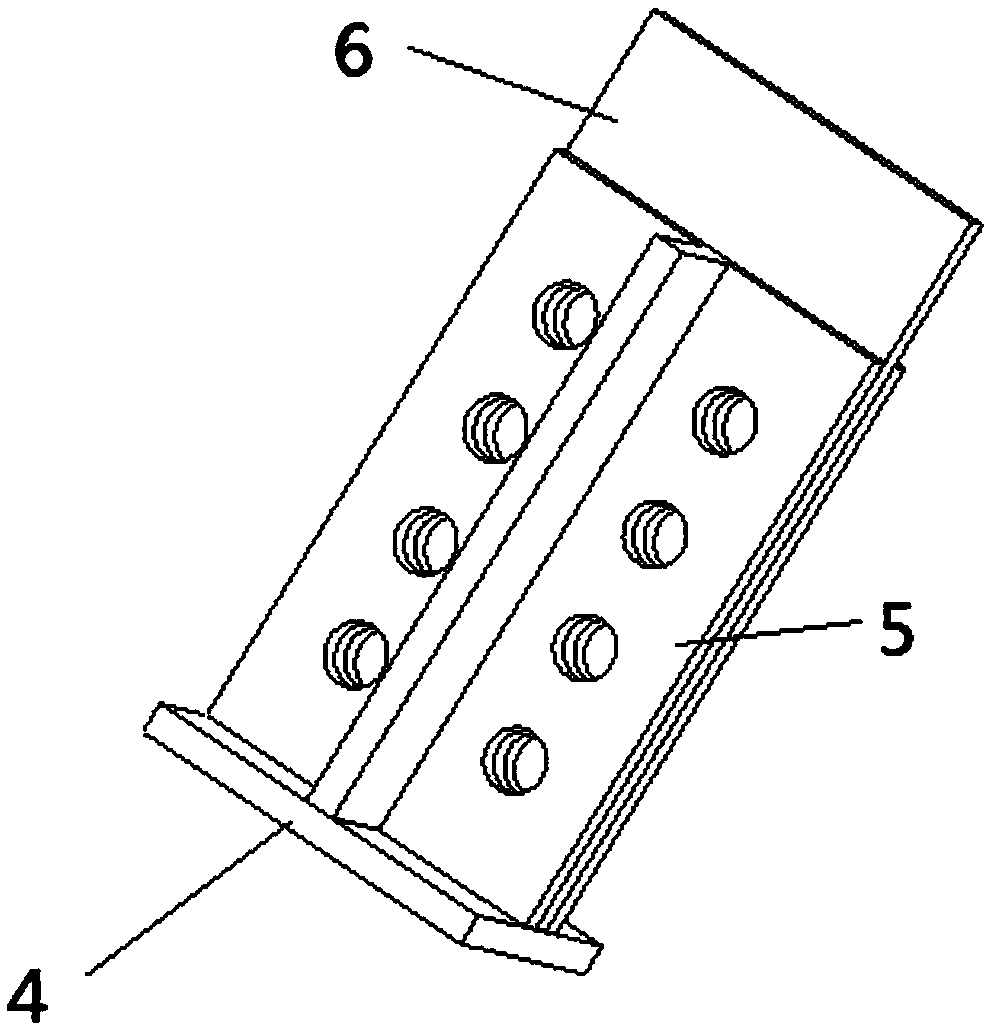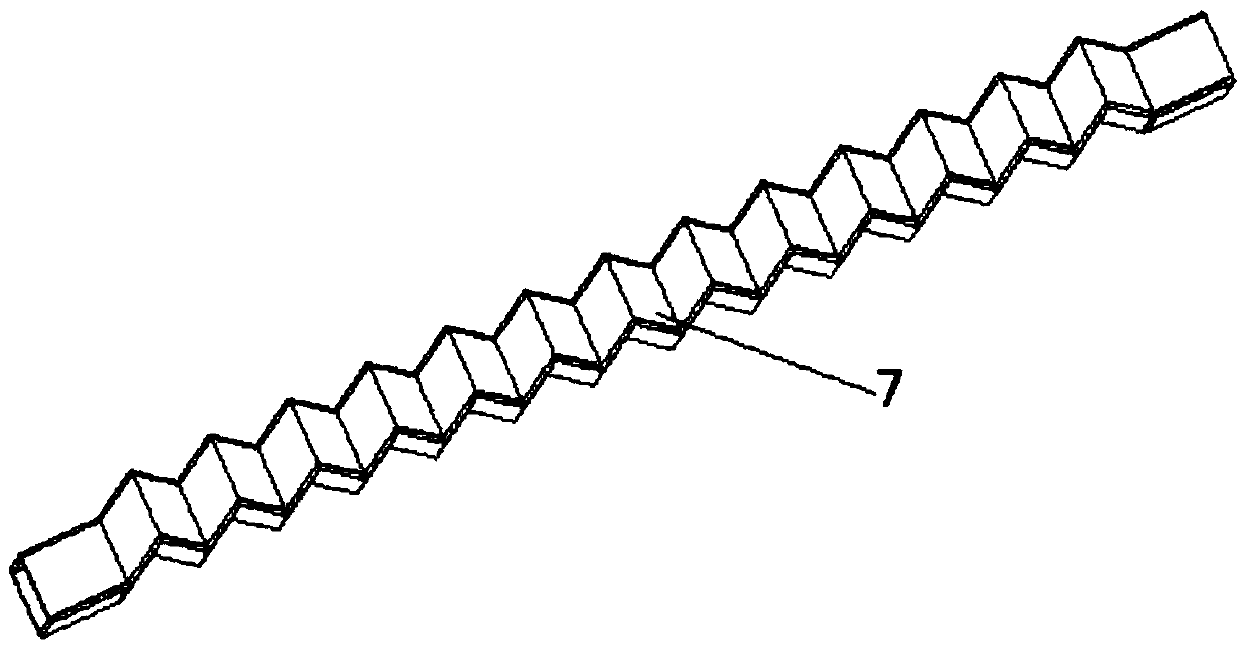A Casing-Restrained Buckling-Resistant Brace with Symmetrical Initial Defects
An anti-buckling support and defect technology, applied in the direction of earthquake resistance, building components, building types, etc., can solve the problems of poor hysteresis performance, achieve the dissipation of seismic energy, solve the problem of large force on components or nodes, and good promotion benefits Effect
- Summary
- Abstract
- Description
- Claims
- Application Information
AI Technical Summary
Problems solved by technology
Method used
Image
Examples
Embodiment Construction
[0022] The present invention will be further described below in conjunction with the accompanying drawings.
[0023] figure 1 It is a structural schematic diagram of the present invention, which is composed of an end restraint section 1 , a buckling section 2 and a casing 3 . The end restraint section 1 is fixed between the beam-column node and the buckling section 2, and the sleeve 3 is fixed outside the buckling section 2 by grouting concrete material.
[0024] Such as figure 2 As shown, the end restraint section 1 is composed of a square steel plate 4, a T-shaped short steel beam 5, and a connecting plate 6 reserved for components such as beams and columns. The square steel plate 4 is welded to the end of the buckling section 2. Two T-shaped short steel beams 5 is welded to the square steel plate 4, see square steel plate 4 and T-shaped short steel beam 5 respectively Figure 5 , 6 shown. The connecting plate 6 is sandwiched between two T-shaped short steel beams 5, a...
PUM
 Login to View More
Login to View More Abstract
Description
Claims
Application Information
 Login to View More
Login to View More - R&D
- Intellectual Property
- Life Sciences
- Materials
- Tech Scout
- Unparalleled Data Quality
- Higher Quality Content
- 60% Fewer Hallucinations
Browse by: Latest US Patents, China's latest patents, Technical Efficacy Thesaurus, Application Domain, Technology Topic, Popular Technical Reports.
© 2025 PatSnap. All rights reserved.Legal|Privacy policy|Modern Slavery Act Transparency Statement|Sitemap|About US| Contact US: help@patsnap.com



